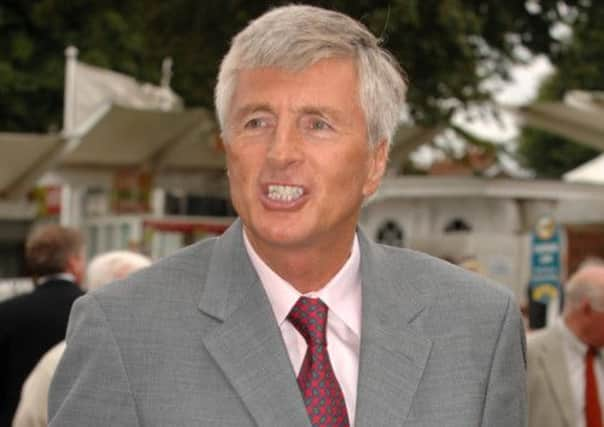Dickinson still has regrets over his ‘famous five’


Thirty years after he pulled off the most remarkable training feat in the history of horse racing, Michael Dickinson still has regrets over his ‘famous five’ Cheltenham Gold Cup.
It was Bregawn, and a fresh-faced Graham Bradley, that won the race for the then Harewood trainer, with stablemates Captain John, Wayward Lad, the 1982 hero Silver Buck and Ashley House completing the next four places.
Advertisement
Hide AdAdvertisement
Hide AdAfter commentating on a pulsating finish between Bregawn and the unheralded Captain John, there was bewilderment – almost astonishment – in the voice of Sir Peter O’Sullevan, the BBC commentator, as Ashley House, the Dickinson stable’s Grand National prospect that year, emerged from a different county to finish fifth.
The pressure on Dickinson, then champion trainer in conjunction with his parents Tony and Monica, was immense. “I was only aged 33, and with five horses in the race, I was nervous,” he told the Yorkshire Post.
“I was even more nervous because Silver Buck and Wayward Lad were the two best horses and neither of them were at their best.
“I felt guilty for asking them to go into battle when I knew they were below par. It haunted me then and it haunts me ‘til this day. There was a real chance we might not have had one in the first three. Combs Ditch, trained by David Elsworth who later won the race with Desert Orchid, had already beaten us twice. Fred Winter had the John Francome-ridden Brown Chamberlain, winner of the Sun Alliance the previous year, and Fifty Dollars More had split our two horses in the King George. It was entirely possible that we might have finished fourth, fifth and sixth.”
Advertisement
Hide AdAdvertisement
Hide AdThe race left its mark. It saw Dickinson, pictured right, become the first NH trainer to win more than £300,000 in a season, but how could he beat this? He ultimately decided to pursue a career on the Flat while his mother took over the training reins at Harewood. There was disappointment in the 1986 Gold Cup when Wayward Lad, back from illness and injury, was beaten in the final strides of an evocative race by Dawn Run.
The 1983 race was also the highpoint in the career of Bregawn’s naturally-gifted jockey Graham Bradley who had been born at his family’s home in Second Avenue, Wetherby.
The subsequent winner of countless big races, he became a bloodstock agent before being banned from the sport for passing on inside information, though he is now considering whether to launch a new career as a trainer.
In his autobiography The Wayward Lad, he wrote about the forcefulness of his frontrunning ride – one of the sources of Dickinson’s regret – as Bregawn became the first Gold Cup favourite to prevail since Arkle in 1966.
Advertisement
Hide AdAdvertisement
Hide AdIronically he was not supposed to make the running – Ashley House had been expected to do so – but Bradley sensed early on that the pace was too slow.
“I had to ask Bregawn for everything and was very hard on him – these days it would certainly be caused excessive use of the whip – but there was only one Gold Cup. I sensed something on my inside and immediately switched my whip through to the left...there was no way I’d lose this in the stewards room,” said the jockey.
“The main challenger was Captain John, very tired and swaying left and right like a drunk with Wayward Lad third. Although weakening rapidly to finish tailed off Silver Buck still held fourth and Ashley House, though out on his feet, 25 lengths further back in fifth. The searching gallop that Bregawn had been able to maintain had broken the heart of every other runner. Sadly, in the end, it broke his too.”
For, while Bregawn did race on, and then enjoy a long retirement, he was never the same horse again.